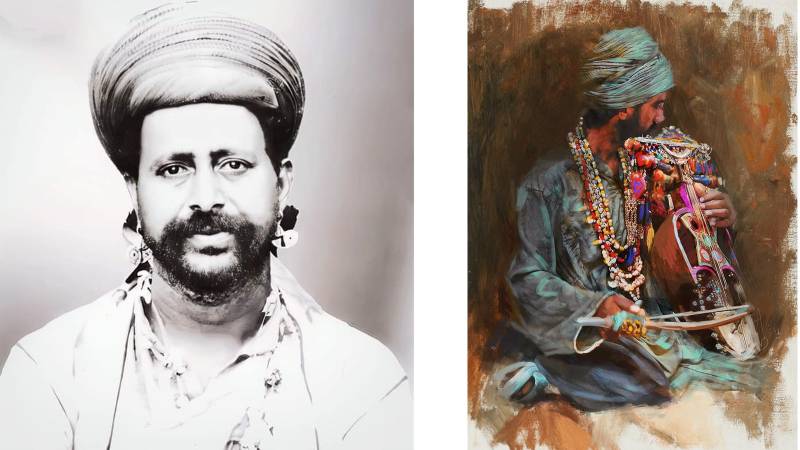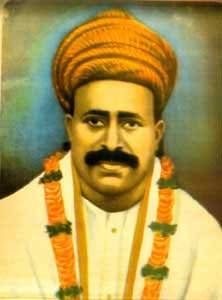
Sindhi music lovers commemorated the 83rd death anniversary of Bhagat Kanwar Ram, known as the Father of Sindhi classical music, who was assassinated by a group of religious extremists on the 1st of November 1939 near a railway carriage in Shikarpur, a historical town of Sindh. Kanwar Ram was a well-known Sindhi Sufi singer and poet. He was equally popular among Hindus and Muslims, and highly respected by both communities.
Every year, many of Bhagat’s devotees from nearby villages as well as far-flung areas of Pakistan and India come to observe his anniversary. For his services to Sindhi poetry, the people pay him a special tribute. Local Sindhi singers take the opportunity on this occasion to sing Sufi songs, and poets recite their poems, many of them written to honour Bhagat. Besides Hindus, a great many Muslims are seen attending this special occasion.
The eminent artist was born in Mirpur Mathelo, a town of district Ghotki, in 1885, to a famous shopkeeper of his area Seth Tarachand. He was always attired in a unique dress: a white kurta and pajama symbolising peace. He pioneered folk and classical music across the Subcontinent and several singers later followed his style of singing. His poetry carried the message of peace, harmony and gratitude to the Almighty God.

As per various historians, he was the first among Sindh’s singers to have sung the poetry of Shah Abdul Latif Bhittai in a unique way, in the traditon of Sachal Sarmast and other Sufi saints. It is also widely believed that he had the ability to treat ailments of people through singing. He had a phenomenal vocal range and flawless command of singing on very high notes. God had gifted him a charismatic, sweet and melodious voice. According to local legend, people would forget everything else when he started singing and dancing.
The legend also says that clouds would cover the sky and it would rain heavily whenever he sang the raga for rain. Some of his compositions are still sung by aficionados in Sindh and in India. After independence, when a Sindhi media and culture department started conducting research on his work under the supervision of Muhammad Qaim Makkah, they were able to they were able to bring forth around 20 compositions and songs of the late Bhagat Kanwar Ram.
He never took or used any of the money that he made from these artistic activities for himself or his family. According to his son Shahzada Mohan Lal, who now lives in Lucknow, India, he was given the title Bhagat in recognition of his services for humanity. It is pertinent to mention here that his family migrated to India after he was shot dead.
“Nale Alah Je Bero Tar Muhinjo” is one of his famous songs sung by many Sindhi singers of India and Pakistan as a tribute to the legendary singer.
Years after his assassination, his statue was installed in the temple of Baba Sri Chand at Faqir village in Thatta district. Historians tell us that the last rites of Bhagat Kanwar Ram were attended by a veritable sea of people.

